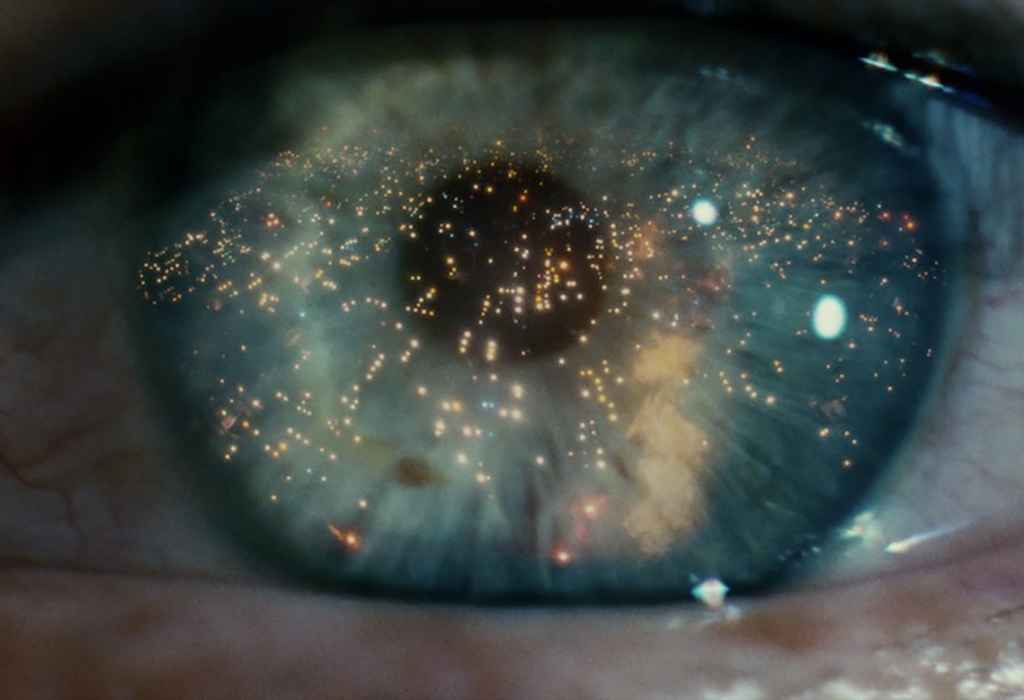Dr. A.M. (Abe) Geil
Faculty of Humanities
Departement Mediastudies
Visiting address
- Turfdraagsterpad 1
Postal address
-
Postbus 94550
1090 GN Amsterdam
Contact details
-
Publications
2024
- Geil, A. M. (in press). Leaves of Grass. In A. Ackerman, L. Arsenjuk, M. Olivero, & A. Solin (Eds.), Reading with Sergei Eisenstein (Reading with Filmmakers). caboose press.
- Geil, A. M. (in press). Mécanisme de la physionomie humaine. In Reading with Sergei Eisenstein (Reading with Filmmakers). caboose press.
- Geil, A. M. (in press). The Expression of Emotion in Man and Animals. In A. Ackerman, L. Arsenjuk, M. Olivero, & A. Solin (Eds.), Reading with Sergei Eisenstein (Reading with Filmmakers). caboose press.
2023
 Geil, A. (2023). The Line of the Impossibility of Flight: Eisenstein, Disney, Malabou. In E. Brinkema, R. Clark, & E. Waldman (Eds.), Graphic Formalism (ASAP/J). ASAP/J. https://asapjournal.com/graphic-formalism-the-line-of-the-impossibility-of-flight-eisenstein-disney-malabou-abraham-geil/ [details]
Geil, A. (2023). The Line of the Impossibility of Flight: Eisenstein, Disney, Malabou. In E. Brinkema, R. Clark, & E. Waldman (Eds.), Graphic Formalism (ASAP/J). ASAP/J. https://asapjournal.com/graphic-formalism-the-line-of-the-impossibility-of-flight-eisenstein-disney-malabou-abraham-geil/ [details]- Geil, A., & Jirsa, T. (2023). Configurations of Portraiture: Subjectivity, Techniques, Mediality. In A. Geil, & T. Jirsa (Eds.), Reconfiguring the Portrait (pp. 1-17). (Technicities). Edinburgh University Press. https://doi.org/10.1515/9781399525091-005 [details]
- Geil, A., & Jirsa, T. (Eds.) (2023). Reconfiguring the Portrait. (Technicities). Edinburgh University Press. Advance online publication. https://doi.org/10.1515/9781399525091 [details]
- de Zeeuw, D., & Geil, A. (2023). 'This Person Does Not Exist': From Real Generalization to Algorithmic Abstraction in Photographic Portraiture. In A. Geil, & T. Jirsa (Eds.), Reconfiguring the Portrait (pp. 43-60). (Technicities). Edinburgh University Press. https://doi.org/10.1515/9781399525091-007 [details]
2020
- Geil, A. (2020). ‘The Cruel Radiance of What Is’: Empathy, Imagination and Estrangement in Johan van der Keuken’s Face Value and Herman Slobbe. Paragraph, 43(3), 330-347. https://doi.org/10.3366/para.2020.0344 [details]
2019
- Geil, A. (2019). Plasmatic Mimesis: Notes on Eisenstein’s (inter)Faces. World Literature Studies , 11(4), 26-41. https://www.ceeol.com/search/journal-detail?id=455 [details]
2018
- Geil, A. (2018). Between gesture and physiognomy: ‘universal language’ and the metaphysics of film form in Béla Balázs’s Visible Man. Screen, 59(4), 512-522. https://doi.org/10.1093/screen/hjy054 [details]
- Geil, A. (2018). The Intervals of Habit. World Picture Journal, 13, 1-32. http://www.worldpicturejournal.com/WP_13/Geil_13.html [details]
2017
- Geil, A. (2017). Paranoid Critiques, Reparative Reductions: Leys, Sedgwick, and the Productive Opacity of Affect. Polygraph: An International Journal of Culture & Politics, 26, 36-64. https://polygraphjournal.files.wordpress.com/2018/02/polygraph-26_abraham-geil1.pdf [details]
2016
2015
- Geil, A. (2015). 'Let us save the heterogeneous sensible:' Vernacular Modernism vs. Cognitive Classicism in the Historical Turn of Film Studies. In A. Beltrame, G. Fidotta, & Andrea Mariani (Eds.), At the Borders of (Film) History: Temporality, Archaeology, Theories: XXI Convegno internazionale di studi sul cinema, Udine, 2-4 aprile 2014 (pp. 335-346). Forum. [details]
2014
- Geil, A. (2014). Writing, Repetition, Displacement: An Interview with Jacques Rancière. Novel, 47(2), 301-310. https://doi.org/10.1215/00295132-2647203 [details]
2009
- Geil, A. M. (2009). A Foothold for Pain: Movement, Recognition, Close-up. In F. Casetti, J. Gaines, & V. Re (Eds.), Dall'inizio, alle fine. Teorie del cinema in prospettiva / In the Very Beginning, at the Very End. Film Theories in Perspective Udine: Forum.
2004
- Geil, A. M., & Rabinovitz, L. (2004). Introduction. In Memory Bytes: History, Technology, and Digital Culture (pp. 1-21). Duke University Press. https://www.dukeupress.edu/Memory-Bytes/
- Geil, A., & Rabinovitz, L. (Eds.) (2004). Memory Bytes: History, Technology and Digital Culture. Duke University Press.
2013
- Geil, A. (2013). The Spectator without Qualities. In P. Bowman (Ed.), Rancière and Film (pp. 53-82). (Critical connections). Edinburgh University Press. [details]
2009
- Geil, A. M. (Author). (2009). Invited response to N. Katherine Hayles, "Distributing/Disturbing the Chinese Room". Web publication or website, The National Humanities Center. http://onthehuman.org/2009/05/distributingdisturbing-the-chinese-room/
2010
- Geil, A. M., & Flaxman, G. (2010). [Review of: J. Hughes. Deleuze and the Genesis of Representation]. Notre Dame Philosophical Reviews, 2010(04.09). http://ndpr.nd.edu/news/24327-deleuze-and-the-genesis-of-representation/
Prize / grant
- Geil, A. M. (2011). Andrew W. Mellon/ACLS Dissertation Completion Fellowship.
- Geil, A. M. (2010). Julian Price Endowed Research Fellowship.
2013
- Geil, A. M. (2013). Plastic Recognition: Politics and Aesthetics of Facial Representation from Silent Cinema to Cognitive Neuroscience.
This list of publications is extracted from the UvA-Current Research Information System. Questions? Ask the library or the Pure staff of your faculty / institute. Log in to Pure to edit your publications. Log in to Personal Page Publication Selection tool to manage the visibility of your publications on this list. -
Ancillary activities
- No ancillary activities
